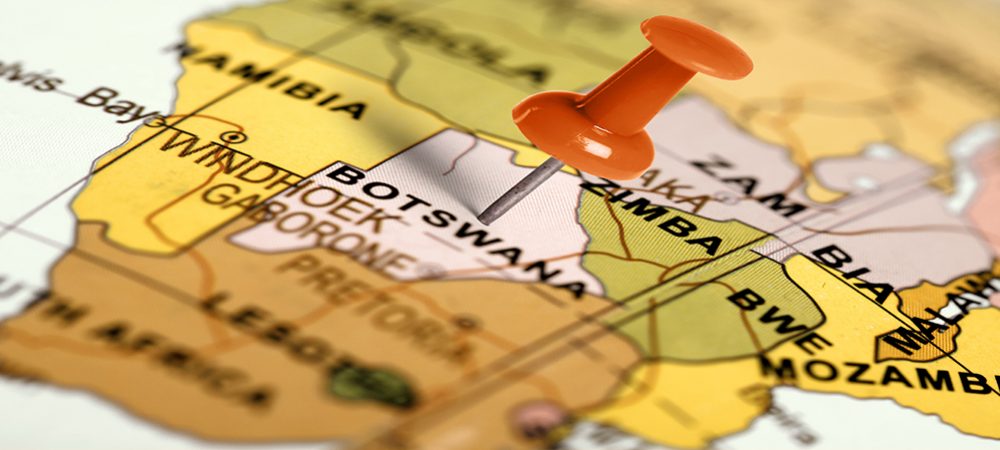Like virtually every other country in the world Botswana is attempting to deal with the ongoing Coronavirus pandemic in the best way it can. Intelligent CIO’s Mark Bowen looks at how technology companies are playing a crucial role.
The year 2020 has not been an easy one for Botswana. The southern African country has in more recent times transformed itself into one of the world’s fastest-growing economies with its development dominated by mining, cattle and tourism.
But this year Botswana has been on a lockdown that started late March that has now begun to ease although its citizens are still advised to wear face masks and wash hands.
Although, in the words of Dr Kereng Masupu, the country’s Covid-19 Task Force Co-ordinator: “Depending on the coronavirus disease pattern, a return to lockdown will remain an option.”
Thankfully, Botswana has a relatively low number of Covid-19 infections and deaths but this has not stopped the authorities, educational institutions and tech companies taking the outbreak extremely seriously with an urge to play their part.
Botswana university develops software tools on COVID-19 data monitoring
For instance, researchers with the University of Botswana have developed computer software tools to help deal with the country’s COVID-19 situation.
The software tools include a dashboard of novel Coronavirus infection cases, as well as applications for remotely monitoring the status of patients in quarantine.
University Vice Chancellor David Norris said that the three software tools were worked out by researchers from the departments of engineering and technology, computer science and medicine.
“The faculty of engineering and technology has developed a web map visualisation and live tracking dashboard that records data and shows real time trends of information on COVID-19 cases in Botswana,” said Norris.
He said the dashboard was developed in collaboration with the Botswana Institute of Geomatics (BIG) and is manned by university personnel.
The two self-assessment applications are for remote monitoring of those in and out of quarantine and also for frontline health workers.
“The self-assessment applications will drive data received from the Ministry of Health and Wellness Department of Monitoring and Evaluation for assessment and analysis to assist in real time decision making,” said Norris.
The developed systems have been set up to interface with the health ministry’s information system, he added.
Business Continuity for BoFiNet
One of the country’s major technology enterprises to make a significant impact beyond the country’s own borders is Botswana Fibre Networks (BoFiNet), a telecommunications company that is wholly owned by the Government of Botswana.
The company has been charged with the responsibility of running an important national strategic asset in the high capacity fibre network within Botswana, as well as the international terrestrial links from Botswana to the rest of the world.
BoFiNet manages these fibre networks in order to create an open access wholesale capability, serving the telecommunications industry in Botswana and abroad. The intent is to drive the vision of Botswana by promoting an Information, Communications and Technology (ICT) enabled environment.
BoFiNet is a wholesale provider of internet and telecommunications infrastructure services. As a result, it does not sell its services to end-users. Instead, it does so to licensed Internet Service Providers (ISPs) who then sell their services to individual end-users and businesses.
As a wholesaler it is the company’s mandate to build and operate world class telecommunications infrastructure that will facilitate broadband penetration and enable ISPs to connect end-users.
Unsurprisingly, given the nature of its role the company is currently playing a vital part in the country’s life. It has been actively involved in the #KeepBotswanaSafe campaign and has been encouraging the wearing of face masks and regular hand washing.
However, BoFiNet felt the need to issue a statement about its Business Continuity to reassure mobile users that telecommunications services would still be available throughout the pandemic.
A statement posted on Facebook read: “In view of the current global outbreak of COVID-19, Botswana Fibre Networks would like to inform its stakeholders and the public on the following Business Continuity response measures we have taken in wake of the pandemic to ensure that we remain in operation while assuring the safety of our employees and stakeholders.
“We are pleased to announce that we have chosen a paperless billing and enquiring solution to add convenience and flexibility to our customers. No more paper, no more stamps and no more headaches!
Huawei signs ICT pact with Botswana Open University
Away from the pandemic, one of the country’s major telecommunications players has been busily planning for the future.
Chinese telecoms giant Huawei Technologies Botswana has signed a Memorandum of Understanding (MoU) with the Botswana Open University (BOU) for the establishment of an Information and Communications Technology academy at the higher learning institution.
Ye Huihui, Huawei Technologies Botswana Managing Director, said that through the MoU, Huawei is striving to meet its obligation to cultivate knowledge and impact communities with the necessary information that can assist or enable them to lead independent and productive lives.
“This MoU means that BOU is now fully registered under the Huawei ICT Academy and has a full mandate to resource through online or directly in the field of routing and switching,” he said.
Huawei will continue to support BOU in the training of instructors to match the learning demands, updating of the course content and evaluating of the institutional performance, he added.
The Huawei ICT Academy programme was established in 2013 under which the telecoms giant has provided quality courses and support services to university or colleges to help them train teachers, establish and optimise ICT majors, improve the curriculum system and build standard labs.
Since 2015, Huawei has partnered with more than 600 international universities to set up ICT academies, helping the universities improve their ICT teaching abilities and training more than 1, 500 teachers.
Through this programme, Huawei aims to develop two million ICT professionals and popularise digital skills over the next five years by collaborating with universities.


